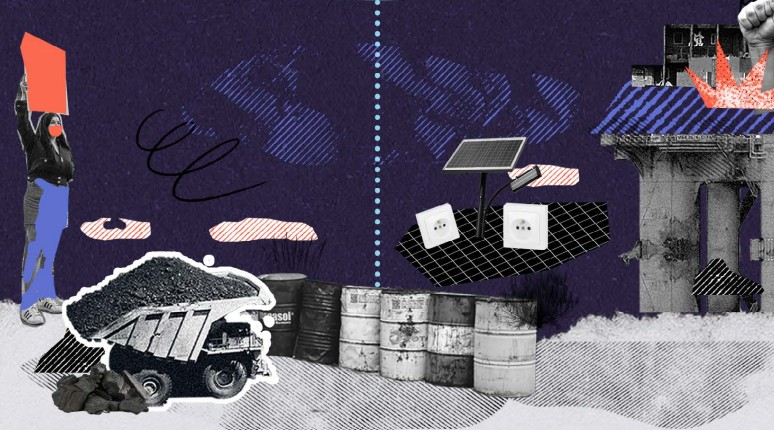As part of the process to establish Publish What You Pay’s Global Strategy from 2020-25 we are are reflecting on key questions which are likely to have significant impact on the way oil, gas and natural minerals are exploited in the future.
In order to collate the diverse perspectives of our membership and to facilitate conversation around these questions, we are hosting a series of webinars.
On Monday the 26th of March we hosted our first webinar which explored how PWYP can address the question of whether natural resources should be extracted at all, and when extraction occurs, under what conditions.
To kick off the conversation, Diarmid O’Sullivan (6mins 45secs), the author of a paper on the future of extraction, by asking 3 important and challenging questions:
We then heard the range of very differing perspectives on these questions from some of our PWYP members from different parts of the world:
The webinar facilitated some energetic discussion highlighting our diverse perspectives eloquently summarised by our webinar chief provocateur, Diarmid O’Sullivan:
“there is clear diverse perspectives from the different countries depending on where they are in their engagements in extractives industries. Different countries have different space for participation in resource governance – what are the key areas of resource governance where meaningful participation is going to be most valuable?
There is clearly a tension between short term benefits and thinking medium and long term.”
Further reading on the topic
General
Two papers examining whether Intergenerational Equity has been implemented in Goa, and the implications of the findings. The first uses World Bank data, the other uses audited financial statements of extractive companies.
Resource Extraction and Conflict in Latin America
Diarmid O’Sullivan’s paper for EITI What’s the point of transparency?
The Norwegian Model: how did the country avoid the resource curse?
What Norway did with its oil and we didn’t
Environment
Integrating environment and mineral economics in the context of Intergenerational Equity in Goa.
Charting a Course: Sustainable Water Use by Canada’s Natural Resource Sectors
Overconsumption – our use of the world´s natural resources by Friends of the Earth
Stop selling the family farm – questioning whether drilling should begin in the Arctic Refuge
Communities
Indigenous Consent and Natural Resource Extraction
Ukraine
Sustainable Legal Framework to Regulate Transparency in Extractive Industries
Zambia
Lebanon
Report on Lebanese Sovereign Wealth Fund Proposal
India
Goa Foundation representation on the National Mineral Policy










